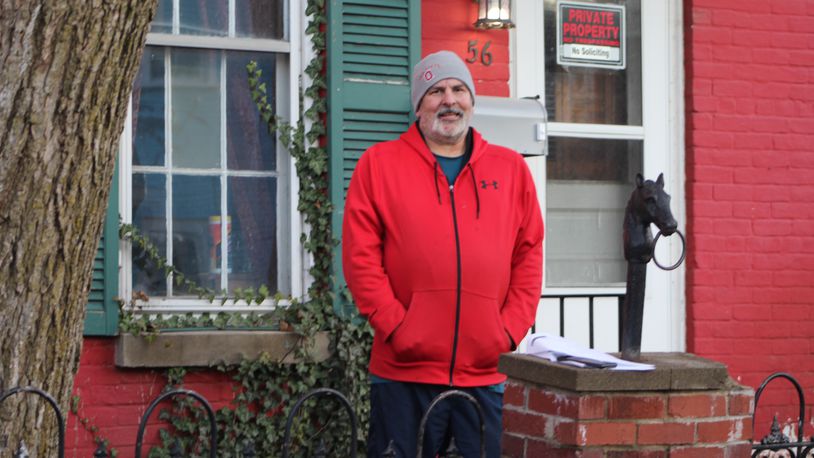RELATED: 1,000 and counting: Dayton’s home fixer-upper program grows
But the number of properties transferred through the program dropped dramatically this year, which coincided with the Montgomery County Prosecutor’s Office decision to stop handling title searches.
Currently, about 300 to 400 applications are in the system, and applicants are having to wait 18 to 24 months to get ownership of the properties, said Brian Inderrieden, acting director of Dayton’s department of planning and community development.
But, Inderrieden said, the number of transfers should increase next year because the city changed the application screening process and hired experts to handle title research services.
Dayton Mayor Nan Whaley said citizens generally rave about the program, but some have expressed frustration with the lengthy wait times to get the properties they want.
“I think we have work to do obviously, since we only transferred 38 properties this year,” she said. “But we only control a short part of the process, which is part of the challenge.”
RELATED: City program takes heat as homes stay vacant
Lot Links is a partnership between the city of Dayton and Montgomery County that is aimed at returning abandoned and tax-delinquent properties to productive uses.
Applicants request abandoned properties, and if eligible, the city asks the county to initiate the tax foreclosure process.
When the foreclosure is complete, the county removes the back taxes and the city takes possession of the property, which it transfers to the applicants. The city collects foreclosure fees from applicants that usually run $2,000 to $2,500.
Since the program’s inception in 2008, the city has transferred ownership of roughly 1,000 vacant, tax-delinquent properties to private owners, city leaders said.
But Lot Links applicants have voiced impatience with the turnaround time. Lot Links received 239 applications for properties this year and 358 in 2016.
City officials in the past estimated that the process takes around 16 months to complete. But wait times right now can be up to two years. Officials said realistically they would like transfers to take between 12 to 18 months.
Whaley said she would like to see more urgency — particularly on the county’s end — to get the properties processed and into the hands of applicants so they can be returned to productive use.
“Citizens come to me and say ‘We love the Lot Links program — it’s a great program — but I just wish it was faster,’” Whaley said.
Greg Soete bought a home on Drummer Avenue in March 2016. Several months later, the 48-year-old requested two empty lots next door through the Lot Links program to turn into a side yard and garden.
Soete is still waiting for the properties to be transferred. He was told it could take two years.
“It’s an awful lengthy time, and if you’ve showed the interest and paid the money upfront, you’d think the process could go a little bit faster,” he said.
RELATED: Thousands of vacant Dayton lots available
For years, the Montgomery County Prosecutor’s Office performed the abstract work for foreclosure filings, which includes title research on the defendants to identify the right parties to name in the foreclosure complaints, said Mary Montgomery, chief of the prosecutor’s civil division.
But the prosecutor’s office did this investigative background work as a courtesy, she said, while elsewhere in Ohio, cities, townships and land banks that request foreclosure complaints are responsible for doing the background work.
Because of the sheer volume of foreclosure cases requested by multiple jurisdictions, the investigative title work became too burdensome for the prosecutor’s office to continue handling, Montgomery said.
“We are not funded to have the manpower necessary to do that abstract work,” she said. “It’s not legal work — we are only required to do the legal work.”
As a result, the city of Dayton earlier this year authorized spending $200,000 to pay two title agencies to take care of the upfront title research services.
About the Author
